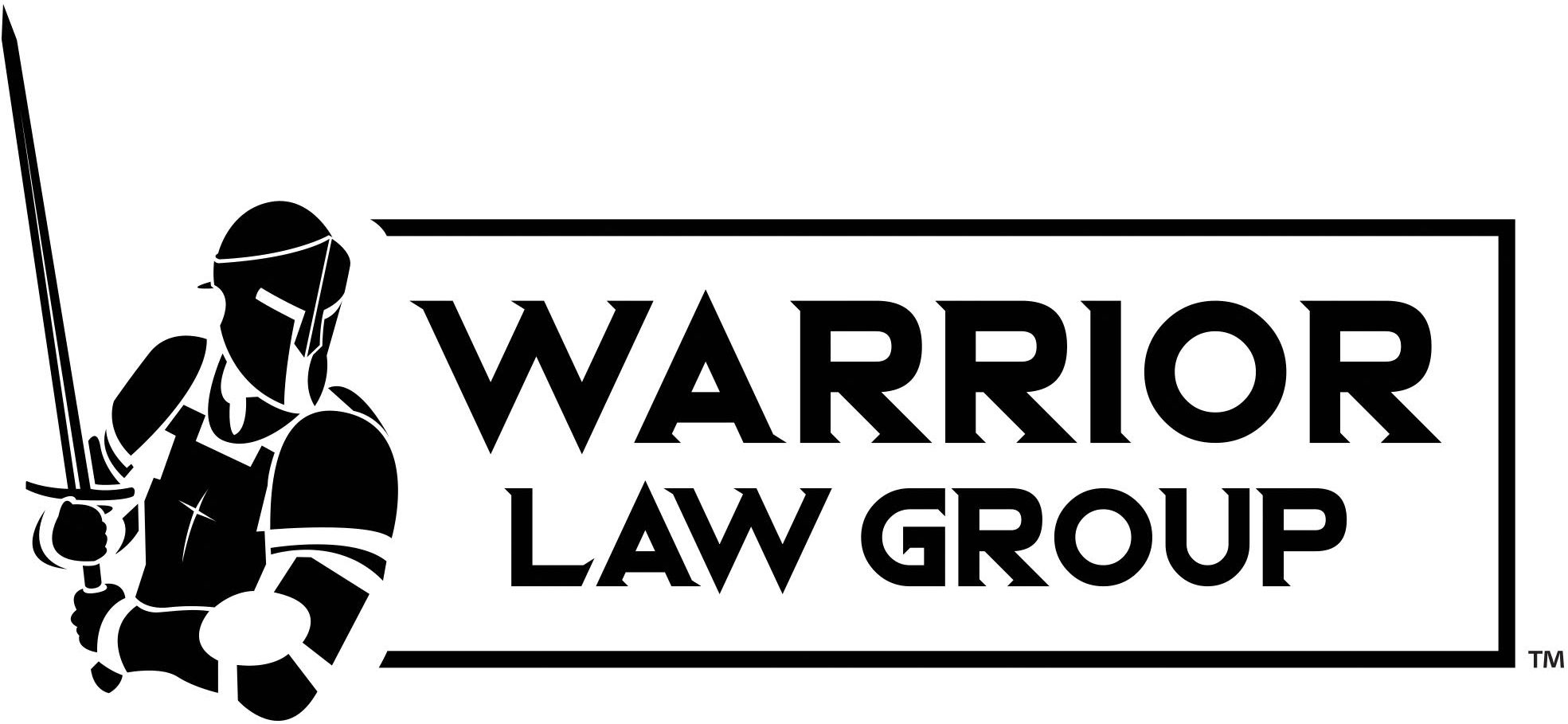How Long Personal Injury Cases Take in Florida
Every personal injury case in Florida unfolds on its own timeline. The duration depends on factors like the extent of injuries, the clarity of liability, how cooperative insurance companies are, and even how busy the local courts may be. While some cases can settle in a few months, others, especially those involving serious injuries or disputes, may take a year or longer. No two cases are identical, but understanding the general stages can help you set realistic expectations.
At Warrior Law Group, we represent injured clients throughout Florida with personalized attention and aggressive advocacy. Our team fights for your recovery and keeps you informed at every step, from your initial consultation to the final resolution of your case.
Injured in Florida and want a realistic timeline for your case? Call Warrior Law Group at (954) 751-9363 for a free case evaluation.
The Big Picture Timeline: From Accident to Resolution
While each personal injury claim has its own unique circumstances, most follow a predictable sequence of stages. Understanding these phases helps you see where your case fits and what comes next.
-
Medical Treatment and Documentation – Seek immediate care and follow through with treatment. Your medical records form the foundation of your claim.
-
Claim Investigation – Evidence gathering begins: police reports, photos, witness statements, and insurance details.
-
Demand and Negotiations – Once your injuries stabilize, your attorney submits a demand package to the insurance company outlining damages and supporting documents.
-
Filing a Lawsuit (if necessary) – If negotiations stall or the insurer undervalues your claim, your attorney can file a lawsuit to protect your rights.
-
Discovery and Depositions – Both sides exchange information, question witnesses, and review expert reports.
-
Mediation and Settlement Discussions – Many Florida courts encourage mediation to resolve disputes efficiently without trial.
-
Trial and Possible Appeal – If settlement isn’t reached, your case proceeds to trial, and in rare instances, to appeal.
Most personal injury claims in Florida settle before reaching trial, often within several months once medical treatment is complete. However, complex cases, disputes over liability, or multiple defendants can extend the process.
Early Medical Care Affects Both Health and Timeline
The first and most important step after an accident is to get medical attention immediately. Prompt care isn’t just vital for your recovery, it also plays a major role in how your personal injury case develops. Insurance companies, opposing attorneys, and even juries will evaluate whether you sought treatment quickly, because long gaps between the accident and your first medical visit can raise questions about the severity or cause of your injuries.
In Florida, this is more than just a best practice, it’s a legal requirement for using Personal Injury Protection (PIP) benefits. Under Florida’s 14-day rule, you must begin medical treatment within 14 days of the accident to qualify for PIP coverage. If you miss that window, the insurer can legally deny your PIP claim, leaving you responsible for out-of-pocket costs.
Qualifying medical providers under Florida’s PIP statute include:
-
Physicians (MD or DO)
-
Chiropractors
-
Dentists
-
Hospital or emergency room facilities
-
Certain urgent care clinics
For example, if you visit an emergency room or chiropractor within two weeks of the crash, your initial exam meets the statutory requirement. But if you wait until day 15, your PIP benefits could be forfeited, even if your injuries later worsen.
At Warrior Law Group, we emphasize early documentation and can help ensure your treatment path satisfies Florida’s insurance requirements while building a strong medical foundation for your case.
Not sure if you meet the 14-day rule or what care qualifies? Contact Warrior Law Group for guidance at (954) 751-9363.
Pre-Suit Phase, Evidence Building, and Demand
Once your immediate medical needs are under control, the next stage is the pre-suit phase, the groundwork that determines how strong and valuable your case will be. Warrior Law Group approaches this stage methodically to maximize your recovery and minimize delays.
Investigation and Evidence
The process begins with a deep investigation into how your accident occurred and who is responsible. Your attorney gathers:
-
Police or incident reports
-
Photos and videos from the scene
-
Witness statements
-
Medical records, imaging, and treatment notes
-
Bills, receipts, and wage-loss documentation
As your treatment progresses, your doctor will eventually determine that you’ve reached Maximum Medical Improvement (MMI), the point where your condition has stabilized. It’s often best to wait until MMI before submitting a full demand to ensure that all future care and long-term impacts are accurately valued. Filing too early can undervalue your claim.
Liability Disputes and Insurance Strategy
Not every case has clear-cut fault. When liability is uncontested, such as a rear-end collision, the process can move quickly. But when insurers dispute fault, claim comparative negligence, or question medical causation, the pre-suit phase can stretch longer. Warrior Law Group builds strong factual and expert support early to minimize these disputes and keep the claim moving toward resolution.
Demand Letter and Negotiation Window
Once your case file is complete, your attorney prepares a demand package, a comprehensive document outlining liability, damages, medical costs, lost income, and evidence supporting your claim. This is sent to the at-fault party’s insurance company to request settlement.
It’s important to note that Florida law does not require insurers to settle third-party bodily injury claims within a fixed number of days. Some carriers respond quickly, while others delay or make low offers to test a claimant’s patience. Warrior Law Group keeps pressure on insurers through consistent follow-up and legal leverage to prevent unnecessary stalling.
When a Lawsuit Is Filed and What That Changes
Even though most personal injury claims in Florida settle before going to court, sometimes filing a lawsuit becomes necessary to protect your rights or to push an insurance company toward a fair settlement. Once a lawsuit is filed, the process becomes more structured and governed by clear procedural timelines. At Warrior Law Group, we handle all aspects of litigation so that you can focus on your recovery while we focus on results.
Filing the Complaint
Filing a formal complaint with the appropriate Florida court is the step that officially starts your lawsuit. This filing also stops the statute of limitations clock from running out, preserving your legal right to pursue compensation. The complaint outlines your allegations, the damages you’ve suffered, and the legal basis for holding the defendant responsible.
The Defendant’s Answer
After the complaint is served, the defendant generally has 20 days to file an answer under the Florida Rules of Civil Procedure. Their response may admit or deny allegations, raise defenses, or even file counterclaims. If the defendant fails to answer in time, your attorney can seek a default judgment. Warrior Law Group closely monitors this stage to keep the case moving forward and ensure deadlines are enforced.
Discovery
During discovery, both sides exchange information to uncover facts and clarify disputed issues. This stage may involve:
-
Written discovery such as interrogatories, requests for production, and requests for admission
-
Depositions where attorneys question witnesses or parties under oath
-
Expert disclosures from medical, financial, or accident reconstruction specialists
Discovery timelines vary depending on court schedules and case complexity. Some cases move through discovery in a few months, while others, especially those involving multiple parties or experts, may take longer. Warrior Law Group keeps this process efficient through proactive scheduling and targeted requests.
Mediation
Before trial, most Florida courts require or encourage mediation, where both sides meet with a neutral third party to attempt settlement. Mediation can occur early or late in the litigation process, depending on readiness and court order. Sometimes one session is enough to resolve the dispute; other times, multiple sessions may be needed.
Even when mediation doesn’t immediately settle the case, it often narrows the issues and brings both sides closer to resolution.
Litigation does not mean your case will take years. We push for efficient discovery and meaningful mediation to resolve your case as quickly and effectively as possible.
Florida Deadlines That Influence Your Timeline
Legal deadlines, known as statutes of limitations, set the maximum amount of time you have to file a lawsuit. Missing one can permanently bar you from recovering compensation, which is why working with a knowledgeable attorney is essential.
Statute of Limitations for Negligence
Florida law changed in March 2023. For accidents that occurred on or after March 24, 2023, you now have two years from the date of the accident to file a negligence-based personal injury lawsuit.
For example:
-
If your accident occurred April 1, 2023, your filing deadline is April 1, 2025.
-
If your accident occurred March 1, 2023, before the law changed, the previous four-year statute likely still applies, meaning your deadline would be March 1, 2027.
This change, enacted through Florida House Bill 837, significantly shortened the filing window, making early legal consultation more critical than ever. Warrior Law Group tracks these deadlines closely to ensure your rights are protected from day one.
Medical Malpractice Is Different
If your case involves alleged medical malpractice, different rules apply. In Florida, you generally have two years from the time the malpractice occurred, or from when it should reasonably have been discovered, to file suit. There is also a four-year statute of repose, meaning no malpractice claim can be filed more than four years after the act, regardless of discovery.
Medical malpractice claims also include presuit investigation requirements, such as obtaining an expert medical opinion before filing.
While this article focuses on general personal injury, it’s important to know that these deadlines can vary depending on case type, discovery date, or the age of the injured person.
Deadlines are critical. If you are not sure which deadline applies to your case, call Warrior Law Group now at (954) 751-9363 for a free, no-obligation consultation.
Factors That Speed Up or Slow Down a Florida Injury Case
Several elements can influence how long your personal injury case takes in Florida. While no two cases are the same, understanding the key variables can help you anticipate what to expect and plan accordingly.
Liability clarity and evidence availability
When fault is obvious, such as in a rear-end collision with clear documentation, cases tend to move faster. If liability is disputed, or there are conflicting witness statements, your attorney may need more time to gather supporting evidence like expert opinions or video footage.
Injury severity and treatment duration
The more serious the injury, the longer it can take to reach maximum medical improvement (MMI). It’s usually best to wait until your condition stabilizes before negotiating a settlement so your future medical needs are fully accounted for.
Number of defendants and insurance carriers
When multiple parties or insurers are involved, coordination and settlement discussions can take longer. Each defendant may have its own legal team and insurance policy to navigate.
Court congestion and scheduling
Some Florida counties have heavier caseloads than others, which can affect the timing of hearings and trials. Larger urban areas like Miami-Dade and Broward often face longer scheduling backlogs compared to smaller jurisdictions.
Settlement posture of the insurer and willingness to mediate
An insurer’s attitude toward settlement plays a huge role in your case timeline. Cooperative carriers may negotiate early, while others delay, make low offers, or force litigation before coming to the table.
Typical timeframes in Florida
Many straightforward cases can resolve within several months to a year, while complex or disputed claims may take longer depending on medical treatment, liability, and court scheduling. These are general observations, not guarantees.
We will give you a case-specific plan after your free consultation. Call Warrior Law Group at (954) 751-9363 to learn what timeline applies to your case.
How Warrior Law Group Works to Keep Your Case Moving
At Warrior Law Group, we know that time matters. Our approach is built to minimize delays, maintain momentum, and achieve the best possible outcome as efficiently as possible.
Proactive evidence collection and early liability analysis
We begin gathering key evidence right away, from accident reports and witness statements to medical documentation, to establish fault and damages early in the process.
Strategic timing of demand once your medical picture is clear
We wait until your condition has stabilized and the long-term impacts are understood before submitting a settlement demand, ensuring your claim reflects the full scope of your injuries.
Aggressive, personalized negotiation with insurers
Every claim receives one-on-one attention from our attorneys. We negotiate firmly and refuse to accept lowball offers that undervalue your pain and recovery.
Readiness to file suit and advance litigation quickly
If negotiations stall, we are ready to file suit immediately, initiate discovery without delay, and push for mediation to bring both sides closer to resolution.
Regular communication and transparency
You will never be left in the dark. Our team provides updates throughout every stage so you always know what’s next and how your case is progressing.
Ready to move forward? Call Warrior Law Group at (954) 751-9363, use our online contact form, or schedule your Free Case Evaluation today.
Frequently Asked Timeline Questions
Can I settle while I am still treating?
Yes, it is possible to settle a personal injury case before your medical treatment is complete. However, it is often better to wait until you have reached a stable prognosis or Maximum Medical Improvement (MMI). Settling too early can result in compensation that does not fully cover your future medical needs or ongoing care. Warrior Law Group will help you evaluate whether it is the right time to settle based on your treatment progress and the evidence available.
What if I missed the 14-day PIP treatment window?
If you did not seek treatment within 14 days of your accident, you may lose access to Florida’s Personal Injury Protection (PIP) benefits. However, you can still pursue a negligence claim against the at-fault party for damages such as medical expenses, pain and suffering, and lost wages. The PIP limitation only affects the insurance portion, not your right to sue. Call Warrior Law Group to discuss your options and next steps.
Will my case go to trial?
Most Florida personal injury cases settle before trial, but at Warrior Law Group, we prepare every file as if it will be tried in court. This proactive approach strengthens your negotiating position and shows insurers that we are serious about getting results. Even when a trial is necessary, our team is ready to advocate aggressively for your rights and compensation.
How long does the defendant have to answer my lawsuit?
Under the Florida Rules of Civil Procedure, a defendant generally has 20 days after being served with your complaint to file an official answer. This stage marks the beginning of litigation, after which discovery and mediation usually follow. Warrior Law Group keeps your case on track by ensuring all parties meet required deadlines.
Next Steps
If you were recently injured in Florida and are unsure what to do next, here is a quick action plan:
-
Get medical care immediately and follow your doctor’s treatment plan.
-
Save all evidence including accident photos, medical records, and receipts.
-
Avoid giving recorded statements to insurance companies before speaking with an attorney.
-
Call Warrior Law Group to discuss your situation and get a clear, case-specific roadmap.
Schedule your free case evaluation today. Call (954) 751-9363 or contact us through our website to get started.


 The Perfect Personal Injury Case
The Perfect Personal Injury Case
